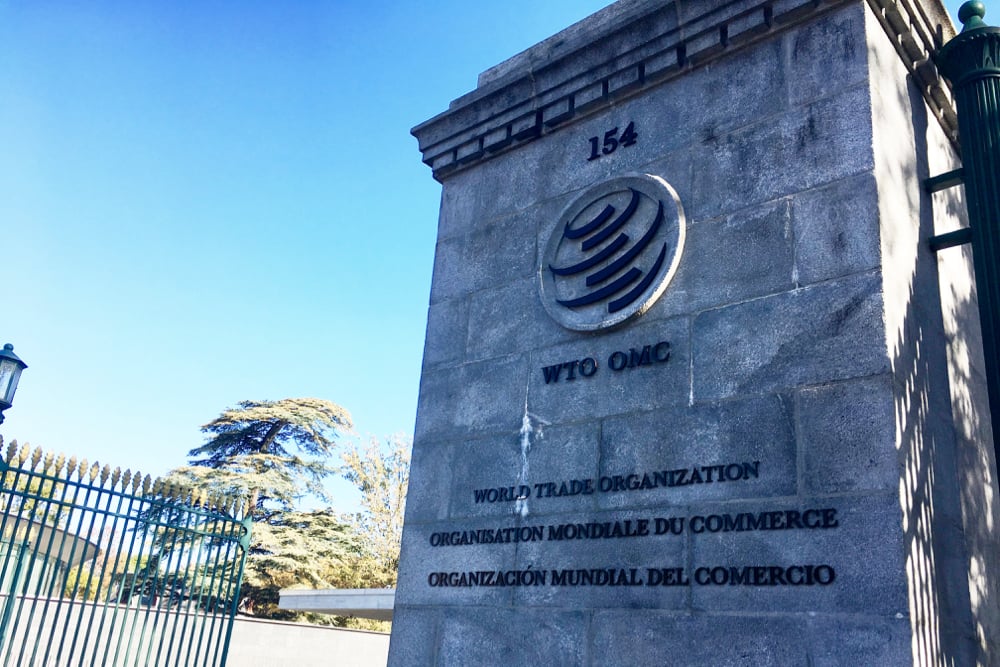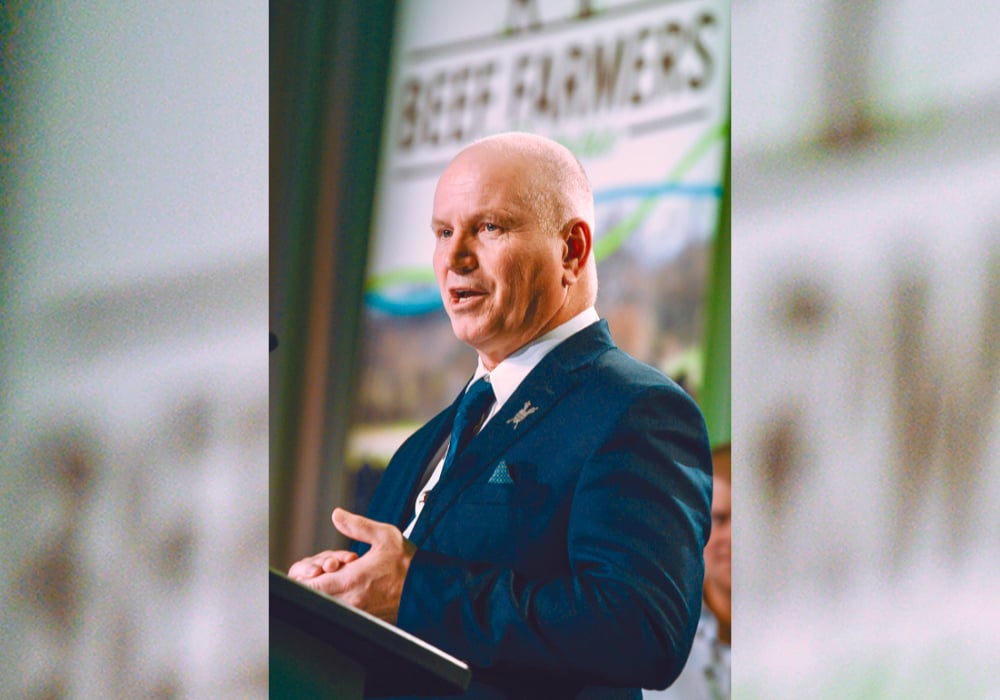How to fix the WTO for agricultural disputes

Glacier FarmMedia – A rebuilt World Trade Organization would benefit agriculture, according to long-time Canadian trade negotiator Steve Verheul.
Read Also

New Beef Farmers of Ontario president takes the helm
Just a reminder, you have about 28 minutes left as president,” Craig McLaughlin joked with Jack Chaffe, Beef Farmers of…
Verheul was among those at the Canadian Federation of Agriculture’s annual meeting in late February.
Why it matters: Canadian agriculture thrives on trade, and that relies on effective and enforceable trade rules.
It’s his belief that the WTO is fundamentally broken and, because of that, agriculture is losing out.
“Agriculture in particular, probably more than most sectors, has the potential to benefit a lot from the WTO because it’s the only place to address subsidies. It’s the only place to address export subsidies. It’s the only place to address those cross-cutting issues, because you never get at those in any bilateral or regional agreement,” he said in an interview.
A level playing field for international trade is among the largest overarching issues for Canada’s agricultural trade, and that can’t be achieved without a functioning WTO, he said.
“I think we have no choice but to try to rebuild it,” Verheul said.
Canada is a mid-sized country trading with much larger partners, and it relies on the existence and enforcement trade rules to be able to do so.
The WTO is fixable, he maintained. In fact, the basic underpinnings of the organization should be left alone. They still work.
Past that, however, “we’ll probably never get unanimous agreement, as the WTO requires, on bold, new ambitious approaches.
“So, I think we’ll see more and more what they’re calling ‘pluralateral’ agreements, where you’ve got a handful of countries that are signing on to something and the others can sign on if they want to or not.”
The WTO could get back on track if the United States stopped blocking appointments to the appellate boards for dispute settlements, he argued.
But there’s also another issue at play, the tension between the U.S. and China and the U.S. and India.
“The gaps among countries are just much larger than they were in the past when we actually built the WTO,” he said. “Some of those could be insurmountable.”
Canada must work with its allies, keep politics out of agreements and continue to sign bilateral deals with like-minded countries, he told CFA delegates.
Those kinds of deals have more weaknesses than multilateral agreements, he admitted, but, for the most part, they’ve been effective.
Talk breakdown
Verheul was Canada’s chief agricultural negotiator between 2003 and 2009 and the country’s chief negotiator from 2017-21, during the time when the new U.S.-Mexico-Canada Agreement, the replacement for NAFTA, was reached.
That deal could be up for renegotiation in 2026. By July 1 of that year, each signatory country has to confirm, in writing, if they want the USMCA to continue as is.
If one country decides not to commit, Verheul said, “we’re into a world of uncertainty.”
Without a full slate of agreement, the deal would have to be reviewed annually until the hold out(s) change their mind, or the deal hits its 2036 expiration.
Verheul said that many expect the U.S. to push for changes.
“I think our hope is that there will be bigger issues that countries are focused on and this will be a little bit under the radar, but I think that’s wishful thinking,” he said. “The one issue that really concerns me is that I keep hearing rumblings, particularly out of the Trump camp, that they may try to overturn some of the dispute settlement decisions through the review.
“We’ve seen the U.S., maybe more than most other countries, becoming less attached to the rules of law if it interferes with their domestic objectives.”
Verheul also touched on Bill C-282, which intends to keep supply managed sectors off the table in future trade talks. Grain and livestock exporters oppose the bill, saying it puts deals at risk, while supply managed sectors say Canada has been dipping too often into concessions impacting their industries to help secure recent trade agreements.
That bill is more a political message than a threat to future negotiations, however, Verheul said.
Each side always has “red lines” when talks begin, he noted.
“I really see this more as a political signal of support to the dairy sector and to supply management more broadly.”
He added that Canada has “already negotiated with most of the major dairy exporters to Canada. There’s no other imminent threat out there.”
CPTPP
Canada had agreed to grant the United Kingdom entrance to the Comprehensive and Progressive Agreement for Trans-Pacific Partnership, but talks stalled after Canadian livestock producers criticized the deal. Regulatory issues mean that they don’t have fair access to that market, groups like the Canadian Cattle Association, Canadian Pork Council, Canadian Meat Council and National Cattle Feeders’ Association have said.
Verheul said Canada does not seem eager to get back to the table until the United Kingdom indicates a more amiable approach.
Future deals
He also expects that climate issues will increasingly affect trade deals.
It’s unfair, for example, to impose environmental requirements on Canadian producers and then expect them to compete with countries that don’t, he said.
“There does need to be further thought and some common approaches developed to try to make that a level playing field too, because I think that risks being the next real challenge of having a divide between different countries,” he said.
– Karen Briere is a reporter with The Western Producer.
Source: Farmtario.com

